Step into the vibrant world of education as we embark on a journey to unpack the intricacies of the British Curriculum – a cornerstone in shaping young minds and fostering academic excellence. At the heart of modern educational practices, the British Curriculum stands as a testament to a rich tapestry of knowledge, designed to empower students with a well-rounded education that transcends borders. Within its structured framework lie key subjects waiting to be explored, each offering unique insights and opportunities for intellectual growth and creativity.
Table of Contents
- A Closer Look At Key Subjects Of The British Curriculum
- The Foundation: English Language
- Mathematical Mastery: Mathematics
- Scientific Inquiry: Science
- Social Studies Spectrum: History and Geography
- Creative Expressions: Arts Education
- Physical Well-being: Physical Education (PE)
- Technological Literacy: Information Technology (IT)
- Embracing Holistic Learning with the British Curriculum
- Embracing Holistic Learning with the British Curriculum
- Frequently Asked Questions About the British Curriculum:
- 1. What makes the British Curriculum unique compared to other educational frameworks?
- 2. How can parents support their children’s learning within the British Curriculum?
- 3. Are there variations in the implementation of the British Curriculum across different schools?
- 4. What role does technology play in enhancing teaching methods within the British Curriculum?
- 5. How does the British Curriculum prepare students for future careers beyond academia?
A Closer Look At Key Subjects Of The British Curriculum
As we delve deeper into this educational landscape, we are met with a kaleidoscope of learning experiences that cater to diverse interests and aptitudes. From the foundational pillars of language arts to the complexities of mathematical mastery, from scientific inquiry that sparks curiosity to social studies that connect us to our past and present – each subject within the British Curriculum plays a vital role in sculpting informed global citizens.
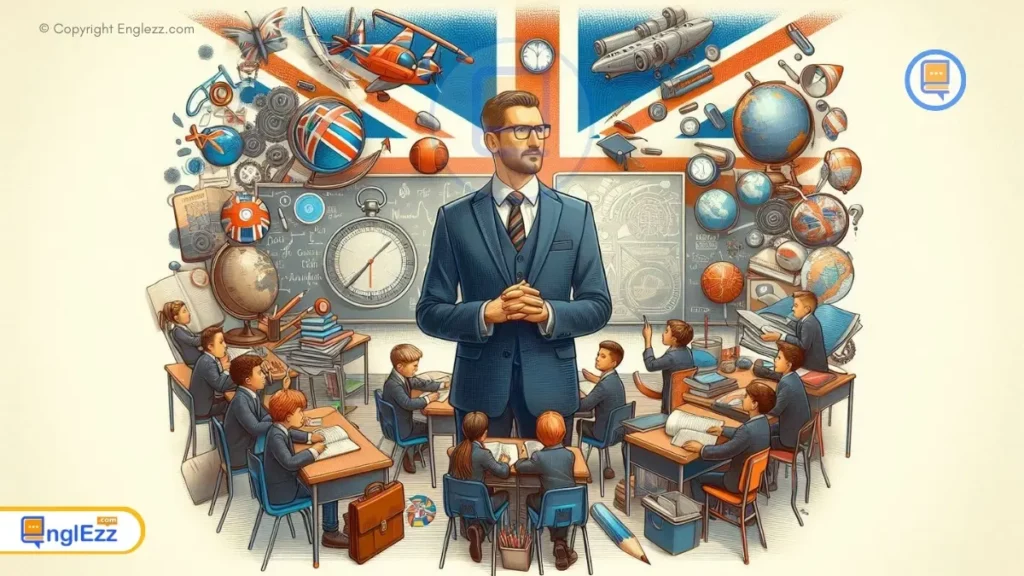
Join us as we unravel these subjects thread by thread, uncovering their hidden treasures and shedding light on how they weave together to create a holistic approach to learning. Let’s embark on this enlightening exploration together, igniting curiosity and embracing the transformative power of education along the way.
The Foundation: English Language
In the British Curriculum, English serves as a foundational subject that goes beyond teaching grammar rules and vocabulary. It emphasizes essential language skills such as reading, writing, and communication, which are crucial for academic success and professional development. Through the study of literature, students not only delve into captivating stories but also gain insights into different cultures and historical contexts. For example, analyzing Shakespeare’s plays can offer a window into Elizabethan England or exploring modern dystopian novels can spark discussions on societal issues.
Moreover, English lessons play a significant role in fostering creativity and critical thinking among students. Writing poetry or crafting short stories encourages self-expression and imagination while challenging learners to think critically about themes and characters. By engaging with diverse literary works, students develop empathy, cultural awareness, and analytical skills that extend far beyond the classroom walls.
The dynamic nature of English classes allows for interactive discussions, debates, and creative projects that stimulate intellectual growth. Students learn how to articulate their thoughts coherently, present arguments persuasively, and appreciate the power of language in shaping narratives. In essence, English education under the British Curriculum is not just about mastering words; it’s about cultivating a holistic understanding of society, history, and human experience through the art of language.
Mathematical Mastery: Mathematics
In the British Curriculum, Mathematics holds a foundational role, equipping students with essential problem-solving skills and logical reasoning abilities. From early education to advanced levels, students engage with core mathematical concepts that build a strong numerical foundation. Concepts such as algebra, geometry, calculus, and statistics are integrated to promote a comprehensive understanding of mathematical principles. By mastering these fundamentals, students develop critical thinking skills that are not only valuable in the classroom but also in real-world situations.
One key aspect of studying Mathematics under the British Curriculum is the emphasis on practical applications. Students are encouraged to see beyond theoretical problems and explore how mathematical knowledge can be utilized in everyday life scenarios. For instance, learning about percentages and ratios can help individuals make informed financial decisions or understand data analysis in various fields. By showcasing the relevance of mathematics outside academic settings, students can appreciate its significance in diverse contexts and industries.
Furthermore, the curriculum places a strong focus on problem-solving techniques that involve analyzing complex situations, devising strategies, and evaluating outcomes. Through challenging math problems and puzzles, students enhance their cognitive abilities and develop resilience when faced with difficult tasks. The process of solving mathematical problems not only strengthens numeracy skills but also fosters perseverance and creativity—an essential skill set for navigating obstacles both in academia and beyond.
Overall, by delving into Mathematical Mastery within the British Curriculum, students embark on a journey that goes beyond numbers; it hones their analytical thinking, problem-solving prowess, and practical application of mathematical concepts in everyday life—a testament to the holistic approach to education championed by this curriculum.
Scientific Inquiry: Science
In the British Curriculum, the subject of Science plays a crucial role in nurturing young minds to become adept at exploring the natural world around them. Through disciplines like biology, chemistry, and physics, students are not only introduced to foundational scientific concepts but also encouraged to think critically and analytically. For example, in biology lessons, students may delve into the intricate workings of ecosystems or even conduct experiments on plant growth to understand photosynthesis firsthand. By engaging with chemistry topics such as chemical reactions or properties of matter, students begin to grasp the fundamental principles that govern the physical world.
One of the most exciting aspects of science education is the emphasis on hands-on experiments that not only make learning interactive but also spark curiosity and a spirit of inquiry within students. From creating chemical reactions in a lab setting to studying forces and motion through practical demonstrations, these activities allow learners to apply theoretical knowledge in tangible ways. For instance, by conducting experiments on simple machines in physics class, students can witness Newton’s laws come to life and truly comprehend their impact on everyday objects around them.

Moreover, instilling a scientific mindset from an early age is invaluable in shaping individuals who value evidence-based reasoning and embrace challenges with a problem-solving mindset. By encouraging students to ask questions, form hypotheses, and test theories through experimentation, educators lay the foundation for future scientists, engineers, and critical thinkers. Science education not only cultivates analytical skills but also fosters creativity as students learn to approach complex problems with innovative solutions grounded in scientific methods.
Social Studies Spectrum: History and Geography
In the British Curriculum, history and geography are pivotal subjects that offer students a window into the rich tapestry of human experiences. History classes delve into significant events like World Wars, ancient civilizations, and societal revolutions, providing insights into how past decisions shape our present reality. For instance, studying the Industrial Revolution not only sheds light on technological advancements but also fosters an appreciation for social progress and labor rights movements today. By connecting historical dots, students develop critical thinking skills and a nuanced understanding of cause-and-effect relationships.
Similarly, geography courses transport learners across continents and time zones, exploring diverse landscapes, climates, and cultures. From analyzing tectonic plate movements to understanding globalization’s impact on trade routes, geographic studies foster global awareness and cultural sensitivity. For example, examining the Silk Road allows students to see how historical trade networks influence current economic policies and international relations. By merging historical contexts with geographical perspectives, students gain a holistic view of how societies evolve within their natural environments.
Encourage cross-curricular connections to foster comprehensive learning experiences. For instance, while studying World War II in history class, students can analyze the mathematical implications of wartime strategies, explore scientific advancements during the period in science classes, and express their emotions through artistic interpretations in arts education. By integrating subjects like history, mathematics, science, and arts seamlessly, students develop a holistic understanding of complex topics.
Furthermore, intertwining history with geography creates a multidisciplinary approach that nurtures empathy and respect for different cultures. Students not only learn about famous battles or landmark discoveries but also appreciate the interconnectedness of human civilizations throughout centuries. Through projects like mapping ancient trade routes or reenacting historical events with geographical significance, educators can craft immersive learning experiences that bridge temporal gaps while highlighting the importance of cultural exchange in a globally interconnected world.
This integrated exploration of history and geography enhances students’ ability to contextualize current affairs through a lens of empathy and understanding.
Creative Expressions: Arts Education
Art education within the British Curriculum is a vibrant tapestry that weaves together visual arts, music, drama, and dance to celebrate creativity in all its forms. From exploring the strokes of a brush on canvas to the rhythmic beats of a musical composition, students are encouraged to express themselves authentically. By engaging with various artistic mediums, students not only hone their technical skills but also learn to appreciate and respect diverse cultural expressions.
Arts education serves as a catalyst for self-expression and encourages students to embrace their uniqueness while fostering an appreciation for cultural diversity. Through artistic endeavors, individuals can communicate emotions, thoughts, and experiences that words alone may struggle to convey. By immersing themselves in creative pursuits, students develop empathy, adaptability, and open-mindedness – essential qualities for navigating an increasingly interconnected world.
Furthermore, arts education plays a pivotal role in nurturing emotional intelligence among students. Whether through interpreting a piece of art or embodying a character on stage, learners are encouraged to explore their feelings and understand those of others. This process not only enhances self-awareness but also cultivates empathy and compassion—a valuable foundation for personal growth and healthy relationships. In essence, arts education transcends boundaries by providing a platform for individuals to express themselves authentically while fostering a deep sense of connection with the world around them.
Physical Well-being: Physical Education (PE)
Physical Education (PE) is not just about running laps or playing sports; it plays a crucial role in molding well-rounded individuals. PE classes are designed to promote physical fitness, teamwork, and sportsmanship among students. Engaging in physical activities helps children develop essential motor skills, coordination, and agility. By incorporating team-based games and exercises, PE fosters camaraderie and teaches students the value of collaboration and cooperation.
Emphasize real-world applications of academic concepts to make learning more meaningful and engaging for students. For instance, in a geography lesson about climate change, students can conduct research on local environmental initiatives or participate in virtual simulations illustrating the effects of global warming on different regions. Connecting theoretical knowledge to practical scenarios not only deepens comprehension but also motivates learners by showcasing the relevance of their studies beyond the classroom.
Regular exercise has profound effects on students’ overall health and well-being. It boosts metabolism, strengthens muscles and bones, improves cardiovascular health, and enhances mental well-being by reducing stress levels. Through PE classes, students learn the importance of maintaining an active lifestyle from a young age. These habits can have long-lasting benefits, instilling a sense of responsibility for one’s own health that extends into adulthood.
Advocating for a balanced approach to academic excellence is at the core of including physical activities within the curriculum. Research shows that physical activity not only improves physical health but also contributes to better academic performance. Exercise stimulates brain function, enhancing concentration, memory retention, and cognitive abilities. By integrating PE into the school day, educators can support holistic development by nurturing both the body and mind of their students.
Technological Literacy: Information Technology (IT)
In today’s digital age, where technology has become an integral part of daily life and professional environments, equipping students with Information Technology (IT) skills is paramount. The British Curriculum recognizes the importance of IT education in preparing students for a tech-driven world. IT courses within the curriculum go beyond basic computer literacy to cover essential aspects such as digital literacy, coding fundamentals, internet safety protocols, and the responsible use of technology. By delving into these areas, students not only gain practical skills but also develop a critical understanding of technology’s impact on society.
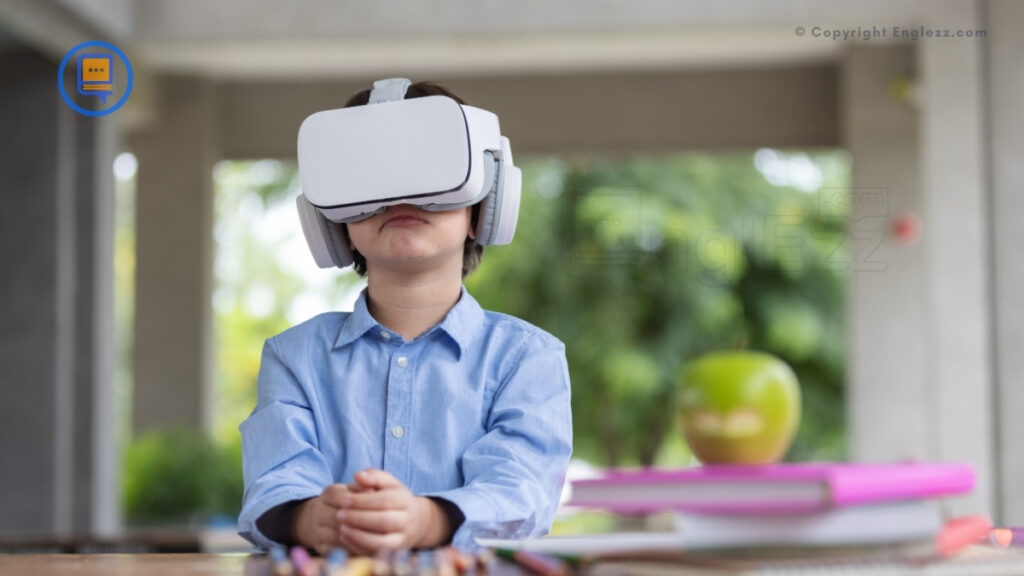
Digital literacy forms a foundational component of IT education under the British Curriculum, empowering students to navigate the vast digital landscape effectively. From understanding data privacy issues to evaluating online sources for credibility, students learn to leverage technology responsibly and ethically. Moreover, introducing coding basics at an early stage fosters computational thinking and problem-solving skills crucial for future careers in fields like software development and engineering. By immersing students in coding exercises and projects, educators can instill a sense of creativity and logic that are essential in the modern technological landscape.
Furthermore, IT courses play a significant role in enhancing educational experiences by incorporating innovative tools and platforms that cater to diverse learning styles. Whether through interactive simulations or collaborative virtual environments, technology enriches classroom dynamics and expands learning opportunities beyond traditional boundaries.
By embracing Information Technology within the curriculum, schools not only prepare students for future career paths but also cultivate a tech-savvy generation capable of adapting to emerging technologies seamlessly. The fusion of educational principles with technological advancement ensures that learners are well-equipped to thrive in an increasingly interconnected and digital world.
Embracing Holistic Learning with the British Curriculum
As we conclude our exploration of key subjects within the British Curriculum, it becomes evident that this educational framework is designed not just to impart knowledge but also to nurture well-rounded individuals. The emphasis on subjects like Information Technology equips students with essential skills for the digital age, ensuring they are proficient in areas vital for future career success. By integrating technology into education, the curriculum adapts to the evolving needs of society and prepares learners to navigate a tech-driven world with confidence and competence.
However, technological literacy is just one piece of the puzzle in the holistic learning experience offered by the British Curriculum. From fostering creativity through arts education to promoting physical well-being via Physical Education classes, every subject plays a crucial role in shaping students’ intellectual, emotional, and physical development. The intersection of disciplines creates a rich tapestry of learning experiences that not only stimulate academic growth but also cultivate essential life skills such as critical thinking, problem-solving, collaboration, and resilience.
By embracing the holistic approach embedded in the British Curriculum, educators, parents, and school administrators can empower students to become versatile learners who excel academically while also thriving in personal and social domains. This comprehensive educational model prioritizes diverse learning styles and interests, catering to individual strengths and fostering a culture of lifelong learning.
As we navigate an ever-changing global landscape where adaptability and innovation are prized qualities, embracing holistic learning through the British Curriculum ensures that students are equipped with a broad skill set that transcends traditional academic boundaries. In essence, it champions a balanced approach that values both cognitive growth and personal development to create well-rounded individuals ready to face the challenges of tomorrow.
Recognize and accommodate diverse learning styles and paces among students within the framework of the British Curriculum. Utilizing differentiated instruction techniques allows educators to tailor lesson plans based on students’ strengths, interests, and areas for growth. For example, providing flexible project options in English assignments allows creative learners to showcase their abilities through visual storytelling while challenging analytical thinkers with critical writing tasks. By catering to individual needs, educators can create a supportive learning environment that nurtures each student’s unique potential.
Embracing Holistic Learning with the British Curriculum
As we conclude our deep dive into the British Curriculum’s key subjects, it becomes evident that this educational framework is designed to foster well-rounded individuals equipped with a diverse range of skills and knowledge. From honing language proficiency in English to cultivating problem-solving abilities in Mathematics, and exploring scientific inquiry in Science, each subject plays a vital role in shaping students’ academic journey. The social studies spectrum enriches learners with historical insights and geographical awareness, while arts education sparks creativity and emotional intelligence. Physical Education promotes physical well-being, while Information Technology equips students for a digital future.
In embracing holistic learning through the British Curriculum, educators, parents, school administrators, and curriculum developers have a responsibility to nurture an environment where every student can thrive academically and personally. By emphasizing not only academic excellence but also creativity, critical thinking, physical fitness, and technological literacy, we empower the next generation to navigate an ever-evolving world with confidence. Let us continue to champion well-rounded education that celebrates diversity, fosters curiosity, and instills a lifelong love for learning.
Frequently Asked Questions About the British Curriculum:
1. What makes the British Curriculum unique compared to other educational frameworks?
– The British Curriculum is renowned for its holistic approach that prioritizes a broad range of subjects alongside core academics.
2. How can parents support their children’s learning within the British Curriculum?
– Parents can engage with their children’s education by fostering a love for reading, encouraging exploration in arts and sciences, and promoting a healthy balance between studies and extracurricular activities.
3. Are there variations in the implementation of the British Curriculum across different schools?
– While the core principles remain consistent, schools may adapt certain aspects based on their student demographics or specific educational goals.
4. What role does technology play in enhancing teaching methods within the British Curriculum?
– Technology serves as a valuable tool for interactive learning experiences, personalized instruction, and preparing students for digital literacy requirements in modern society.
5. How does the British Curriculum prepare students for future careers beyond academia?
– By fostering critical thinking skills, creativity through arts education, problem-solving abilities from mathematics & science disciplines, as well as digital literacy through IT training.
By addressing these questions and continuously exploring innovative approaches to education within the British Curriculum framework, we pave the way for comprehensive growth and development among learners worldwide.


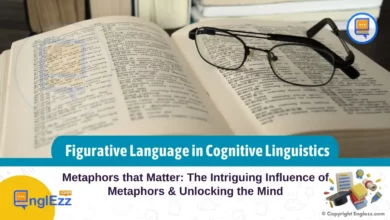

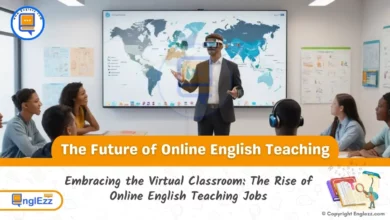



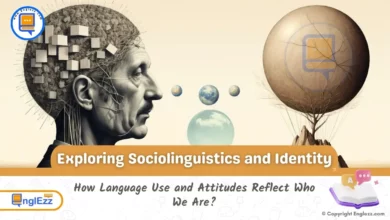
Discover the essential key subjects of the British Curriculum in this insightful exploration. Uncover the core topics shaping education today.
I do believe all the ideas youve presented for your post They are really convincing and will certainly work Nonetheless the posts are too short for novices May just you please lengthen them a little from subsequent time Thanks for the post